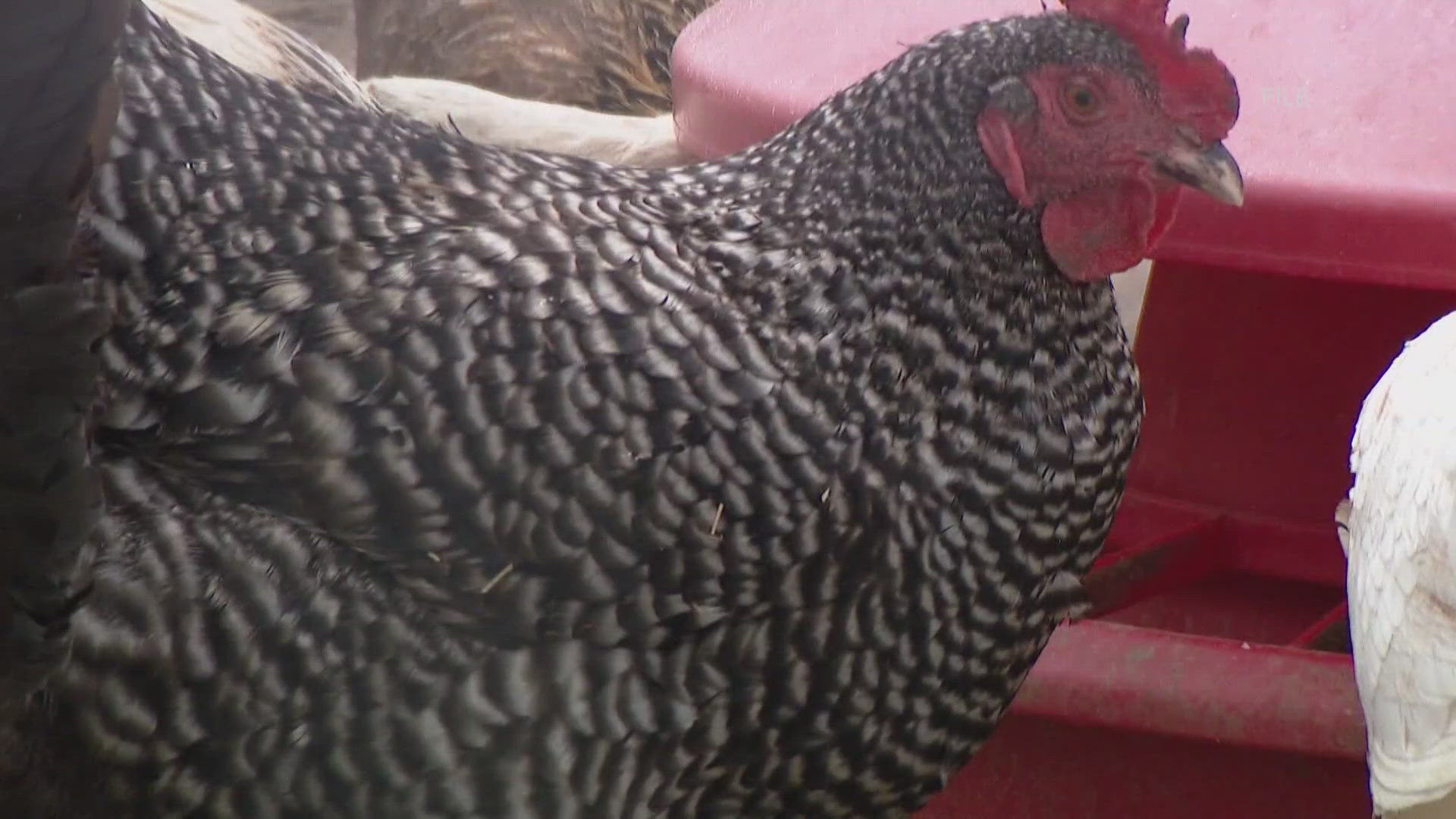FRANKLIN COUNTY, Wash. — The Centers for Disease Control and Prevention (CDC) confirmed Thursday that at least two Franklin County poultry workers tested for highly pathogenic avian influenza do have the illness, with additional testing underway.
The Washington Department of Health previously shared several workers were "presumed positive," as veterinarians tallied outbreaks among birds in the state.
Human health, animal health and environmental agencies are working together to assess conditions, prevent further spread, and better understand the strain.
"Avian flu is a perfect example of why we need a One Health approach that we haven't always taken in the past," said Dr. Peter Rabinowitz, University of Washington professor of Environmental and Occupational Health Sciences. "What we need are people who are experts with animal health, such as veterinarians, working together with human health professionals as well as understanding what's going on in the environment to drive understanding of new diseases."
Elizabeth Strater with the labor union United Farm Workers said it's critical employers educate workers about the risks of avian influenza, and inform them of rights available to them in Washington state if they're infected and provide personal protective equipment.
"Workers compensation is an important part of this from a public health way, because when workers are reluctant to get tested; because if they test positive they're sent home to isolate for 10 days- farmworkers can't afford to have 10 days off work unpaid," Strater said. "I think there's a lot of momentum in Washington state, which is great, we also want to see that from an enforcement perspective, but we really do see every infection as a worker safety failure."
Agencies have not reported any evidence of human-to-human transmission of bird flu in Washington state. There have been some concerns about potential mutations that could accelerate the spread.
"We've never seen, up until the past two years, a strain of highly pathogenic avian influenza that can circulate so widely around the world very quickly in wild birds, but also infect many different species of mammals and then have many of those mammals transmit to other mammals," Rabinowitz said.
Public health agencies said workers who have contact with poultry are encouraged to get the seasonal influenza vaccine to prevent potential dual infection or re-assortment of the virus.
Strater notes that while that will help to protect the general population, it's important that special attention be paid to preventing it specifically in worker populations.

